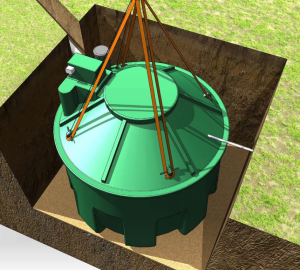Wastewater, also known as sewage or used water, is the by-product of our daily activities. It includes water from households, industries, and businesses, containing various contaminants and pollutants. The treatment of wastewater plays a vital role in preserving our environment, safeguarding public health, and promoting sustainable water management. In this blog post, we will explore the reasons why wastewater treatment is of utmost importance.
1. Environmental Protection
Untreated wastewater contains harmful substances that can have a detrimental impact on the environment. When released into rivers, lakes, or oceans, these contaminants can disrupt aquatic ecosystems, leading to the loss of biodiversity. Wastewater can deplete oxygen levels in water bodies, causing harm to fish and other aquatic organisms. Additionally, it can introduce excessive nutrients like nitrogen and phosphorus, leading to algal blooms and oxygen-deprived dead zones. Proper treatment of wastewater reduces the discharge of pollutants, minimising the ecological damage and preserving our natural resources.
2. Protection of Public Health
Wastewater often contains pathogens such as bacteria, viruses, and parasites that can pose significant health risks. If untreated or improperly treated wastewater enters our water supplies, it can contaminate drinking water sources and result in waterborne diseases like cholera, dysentery, and typhoid. Adequate treatment of wastewater is essential to remove these disease-causing microorganisms and ensure that the water we consume is safe for our health. By treating wastewater effectively, we protect ourselves and our communities from the spread of waterborne illnesses.
3. Resource Conservation
Water is a finite resource, and the treatment of wastewater allows us to maximise its utility. By treating and reusing wastewater, we can reduce the demand for freshwater sources, particularly in areas facing water scarcity. Wastewater treatment facilities employ advanced processes to remove impurities, making the water suitable for non-potable uses like irrigation, industrial processes, and toilet flushing. Implementing water reuse strategies helps to conserve freshwater reserves, ensuring their availability for essential purposes and reducing the strain on ecosystems.
4. Protection of Ecosystems
Wastewater contains various chemicals and contaminants that can harm both terrestrial and aquatic ecosystems. When untreated wastewater is used for irrigation, the contaminants can accumulate in soil, affecting plant growth and agricultural productivity. By treating wastewater before using it for irrigation, we can minimise the adverse effects on soil quality and safeguard crop production. Moreover, proper treatment also prevents the discharge of pollutants into natural water bodies, preserving the health of aquatic ecosystems and supporting the diverse organisms that rely on them.
5. Reduction of Pollution
Wastewater often contains pollutants such as heavy metals, organic compounds, and nutrients that can be harmful to the environment and human health. If released without treatment, these pollutants can contaminate water sources, soil, and air. By implementing effective wastewater treatment processes, we can remove or reduce the concentration of these pollutants, mitigating their adverse impacts. This helps in maintaining the quality of our natural resources and reducing pollution-related problems such as eutrophication, acidification, and soil degradation.
6. Compliance with Regulations
Many countries have established regulations and standards regarding the treatment and disposal of wastewater. Compliance with these regulations is crucial to ensure responsible and sustainable water management practices. Proper wastewater treatment helps industries and municipalities meet these regulatory requirements, avoiding legal penalties and contributing to a cleaner environment. By adhering to wastewater treatment regulations, we can collectively work towards a healthier and more sustainable future.
Conclusion
The treatment of wastewater is of utmost importance for several reasons. It protects our environment, preserves public health, conserves valuable resources, safeguards ecosystems, reduces pollution, and ensures compliance with regulations. By recognising the significance of wastewater treatment and investing in the necessary infrastructure and technologies, we can create a more sustainable and resilient water management system. Let us join hands in promoting responsible wastewater treatment practices to secure a cleaner and healthier future for generations to come.
Get in touch
Eco-Septic is a Sydney-based manufacturer and specialises in commercial wastewater systems of various shapes and designs. We can provide fast and free quotes relevant to your commercial wastewater needs, all while keeping in mind individual spending capabilities.
Contact us today for a fast quote at 1800 808 135 or visit us at www.ecoseptic.com.au.
We cover all Sydney suburbs as well as the regions of South Coast, Snowy Mountains, Southern Highlands, Riverina, the Blue Mountains and Hawkesbury, Laguna, North and Mid North Coast, Bateman’s Bay, Nowra, Mallacoota, Narooma, Balmoral, Cobargo, Glenn Ines, Avondale, Glenmore, Mogo, Tarago, Torrumbarry, Albury, Faulconbridge, Maraylya, Sherbrooke, Strathdickie, Little Hartley, Linden, cattail, Bowen Mountain, Murwillumbah, Kyogle and Bryon.
Related Posts
- How Do Grey Water Recycling Systems Work?
- Why is Wastewater Treatment Important?
- What Size Septic Tank Do I Need?
- Navigating Wastewater Solutions: A Guide to the Application Process Through NSW Councils
- How do I find septic tank maintenance near me?
- Are Septic Tanks Better For The Environment Than Sewer Systems?
- Beyond the Tank: Unleashing the Potential of Treated Septic Water in Australia
- Five reasons to use Australian-made septic tanks





